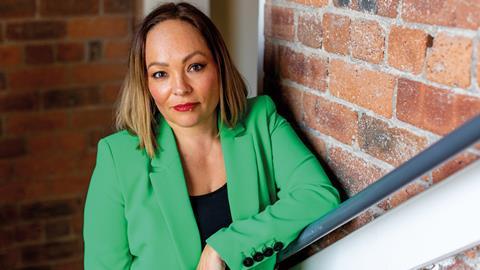Founder and CEO, Halifax and London
I can’t remember exactly what motivated me to become a lawyer, but I know that I decided to take this path at 13. I was brought up on a dairy farm in the middle of nowhere in Devon. Although it was idyllic, the teenager in me wanted to escape the countryside and start what I thought would be an exciting, challenging career. No one in my family had been a lawyer, in fact I was the first to go to university. I cringe slightly at how woefully unprepared I was for a training contract interview at a magic circle firm. I remember the firm wrote to me saying I had been unsuccessful, but they enjoyed meeting me. I took that to mean I may have at least made an impression and made them smile.
I enjoyed the law degree and LPC but my highlight was achieving a master’s in European law at Charles University in Prague. It was an experience I’ll never forget (and the beer is next level).
I began my training contract at a medium-sized firm in Bristol. This was the perfect baptism of fire and enabled me to try a variety of practice areas. Ironically, I really didn’t like employment as a module on the LPC but at work I loved it and it was the only area I wanted to focus on. Unfortunately, there was no role available so off I went to Weightmans in Birmingham to be an employment solicitor.
I spent the next few years in front of judges in the employment tribunal, defending FTSE 100 companies, where I found my niche. It was great to be able to work with clients preparing their cases, as well as putting that case to a judge. Employment is such a great area because it changes regularly so every day is different. It’s also all about people and you can do some really rewarding work on both sides of the fence, particularly in relation to discrimination claims. It also allows you the opportunity to try advocacy, which is a great skill.
'I wanted to set up something based on a more modern business model, where everyone could work how, where and when they wanted, with complete flexibility'
I set up Han Law because I had such a varied background in law but the traditional law firm model was restrictive. I wanted to set up something based on a more modern business model, where everyone could work how, where and when they wanted, with complete flexibility. Our lawyers also receive at least 70% of the fees they generate. I love the fact that we can be transparent about that and pay everyone fairly. All our team enjoy the flexibility, whether that be to spend time with family or pick up children from school, train for triathlons, run an Airbnb project, or just to get outside more, avoid the stress of a commute and focus on their wellbeing.
We know that it is working because we are regularly approached by businesses that want to work with us. We show a more human side of law through our social media. Companies choose us because of how we are a better fit with their own work culture than some more traditional firms.
Covid was a challenging time for employment lawyers and HR professionals. The law around furlough changed regularly and it was a minefield to keep up to date. At Han Law we were also seeing worrying trends, such as women losing their jobs or cutting hours as a result of home schooling. Indeed, the research shows that women’s rights in the workplace have been significantly denigrated as a result of Covid. We wanted to do something to change that. Work with a purpose is important to us and we don’t feel that enough firms do that. So we ran a campaign – the fair redundancy pledge. The idea was to encourage businesses to be transparent about who exactly was being made redundant because of Covid, broken down by gender, nationality, race and ethnic origin. We had several large businesses sign up including a couple of law firms. This shone a light on the demographic of people being made redundant and made organisations think about whether certain groups were being targeted more than others (consciously or subconsciously).
As an employment lawyer, there is always someone who needs advice. It is one of my values that I have stuck to since I set up Han Law – no one who contacts us for help is turned away. I don’t agree that everything should be charged: sometimes people just need support or a steer in the right direction – not everyone needs our help formally and it’s part of our important role in society to provide help without charge, if needed.
































No comments yet